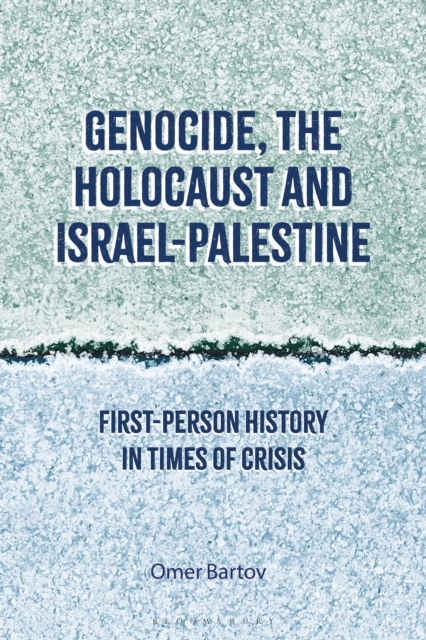Genocide, the Holocaust and Israel-Palestine: First-Person History in Times of Crisis

Genocide, the Holocaust and Israel-Palestine: First-Person History in Times of Crisis
This book discusses some of the most urgent current debates over the study, commemoration, and politicization of the Holocaust through key critical perspectives. Omer Bartov adeptly assesses the tensions between Holocaust and genocide studies, which have repeatedly both enriched and clashed with each other, whilst convincingly arguing for the importance of local history and individual testimony in grasping the nature of mass murder. He goes on to critically examine how legal discourse has served to both uncover and deny individual and national complicity. Genocide, the Holocaust and Israel-Palestine outlines how first-person histories provide a better understanding of events otherwise perceived as inexplicable and, lastly, draws on the author's own personal trajectory to consider links between the fate of Jews in World War II and the plight of Palestinians during and in the aftermath of the establishment of the state of Israel.
Bartov demonstrates that these five perspectives, rarely if ever previously discussed in a single book, are inextricably linked, and shed much light on each other. Thus the Holocaust and other genocides must be seen as related catastrophes in the modern era; understanding such vast human tragedies necessitates scrutinizing them on the local and personal scale; this in turn calls for historical empathy, accomplished via personal-biographical introspection; and true, open-minded, and rigorous introspection, without which historical understanding tends toward obfuscation, brings to light uncomfortable yet clarifying connections, such as that between the Holocaust and the Nakba, the mass flight and expulsion of the Palestinians in 1948.PRP: 197.92 Lei
Acesta este Prețul Recomandat de Producător. Prețul de vânzare al produsului este afișat mai jos.
178.13Lei
178.13Lei
197.92 LeiLivrare in 2-4 saptamani
Descrierea produsului
This book discusses some of the most urgent current debates over the study, commemoration, and politicization of the Holocaust through key critical perspectives. Omer Bartov adeptly assesses the tensions between Holocaust and genocide studies, which have repeatedly both enriched and clashed with each other, whilst convincingly arguing for the importance of local history and individual testimony in grasping the nature of mass murder. He goes on to critically examine how legal discourse has served to both uncover and deny individual and national complicity. Genocide, the Holocaust and Israel-Palestine outlines how first-person histories provide a better understanding of events otherwise perceived as inexplicable and, lastly, draws on the author's own personal trajectory to consider links between the fate of Jews in World War II and the plight of Palestinians during and in the aftermath of the establishment of the state of Israel.
Bartov demonstrates that these five perspectives, rarely if ever previously discussed in a single book, are inextricably linked, and shed much light on each other. Thus the Holocaust and other genocides must be seen as related catastrophes in the modern era; understanding such vast human tragedies necessitates scrutinizing them on the local and personal scale; this in turn calls for historical empathy, accomplished via personal-biographical introspection; and true, open-minded, and rigorous introspection, without which historical understanding tends toward obfuscation, brings to light uncomfortable yet clarifying connections, such as that between the Holocaust and the Nakba, the mass flight and expulsion of the Palestinians in 1948.Detaliile produsului













